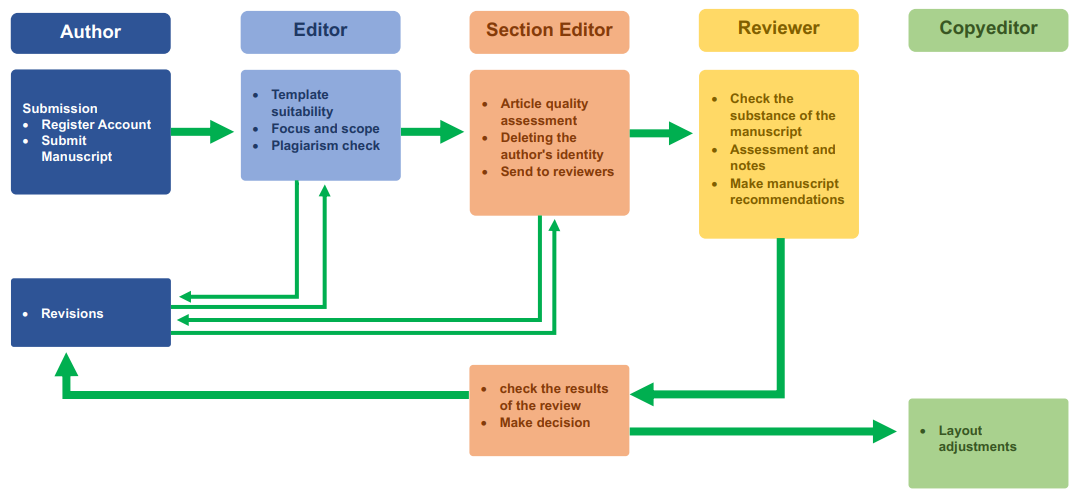
Journal of Computers and Digital Business
E-ISSN 2830-3121

Peer Review Process
1. Initial Screening
All submitted manuscripts undergo an initial screening by the Managing Editor to ensure their alignment with the journal’s focus, scope, and formatting requirements. Manuscripts that meet these criteria are forwarded to the next stage, while those that do not are returned to the authors with constructive feedback.
2. Plagiarism Check
Manuscripts are checked for plagiarism using Turnitin, with a maximum similarity threshold of 25%. Manuscripts exceeding this limit will be rejected. Those that meet the requirement proceed to the pre-review stage, where their novelty, relevance, and scientific contribution are assessed.
3. Peer Review
Manuscripts that pass the initial evaluation are subjected to a double-blind peer review by two experts in the relevant field. The review process evaluates:
- Scientific quality and validity
- Originality and contribution to the field
- Structure, clarity, and coherence
- Compliance with ethical research standards
4. First Decision
Editorial decisions are based on reviewer reports. In cases where reviewers hold differing opinions, the Editor-in-Chief will make the final decision. Possible outcomes include:
- Accepted without revision (proceeds directly to publication)
- Accepted with minor revisions (requires slight modifications)
- Accepted with major revisions (requires substantial revisions)
- Rejected (does not meet the journal’s standards)
5. Revision Stage
If a manuscript requires revision, the author is given two weeks to submit the revised version. The resubmission must be accompanied by a response letter addressing the changes made. Failure to submit the revision within the given timeframe, without prior notice, may result in the manuscript being removed from the editorial process.
6. Final Decision
Once the revisions are approved, the manuscript undergoes a final evaluation by the Editorial Board before proceeding to copyediting, layout, and publication.
7. Article Withdrawal Policy
Manuscripts that have entered the peer review stage cannot be withdrawn unilaterally by the author, as this disrupts the editorial process and wastes the efforts of editors and reviewers. If the author does not submit the required revisions within the specified timeframe or fails to respond to editorial communications for more than six months, the manuscript will be considered inactive and will not be processed further.














